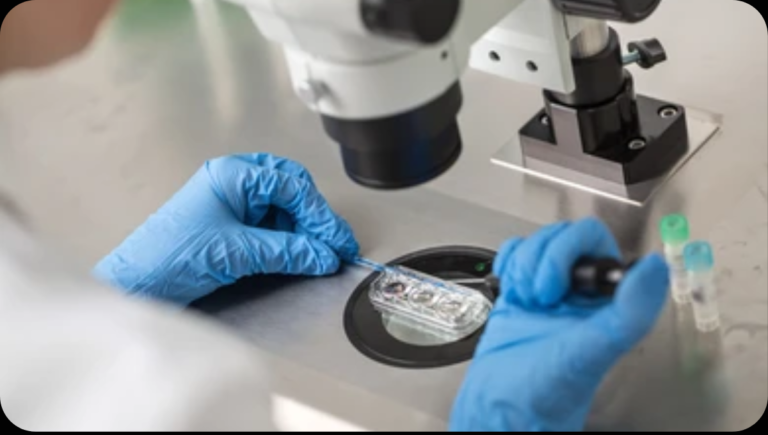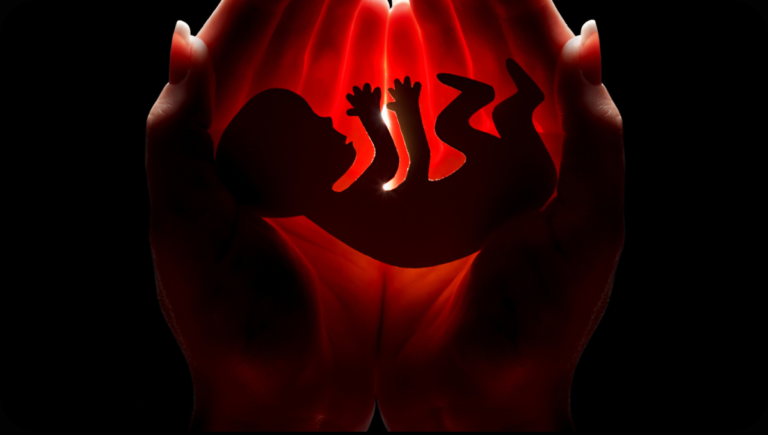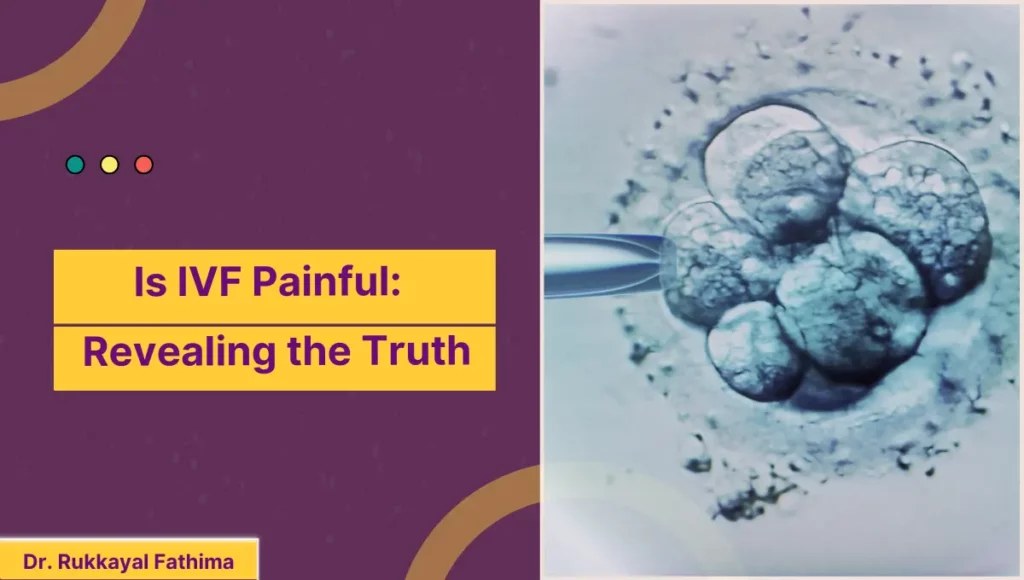It is okay for you to have a few questions. Is IVF painful? That is the common question If you have never gone through the process of IVF therapy before. You might be curious about whether or not in vitro fertilization causes discomfort.
Do the injections come with any negative consequences? Is the transfer of the embryo a painful procedure?
In this article, we will do our best to address your questions and concerns by answering the above questions. Through this, you can enter the IVF treatment with self-assurance and be completely prepared.
Is IVF Painful?

The administration of injections is essential to the IVF procedure. Your ovaries are encouraged by these injections to produce mature eggs, which are subsequently collected and fertilized with sperm.
IVF shots do not often cause a great deal of discomfort. However, it is essential to remember that each person’s experience with them will be unique.
It may differ from person to person. This implies that someone with more sensitivity may feel more discomfort than someone with lesser sensitivity.
These medications aid in conception by encouraging the production of more eggs than would typically be released during a regular cycle. These medications would require you to self-administer them using a needle.
A lot of patients are wary of getting injections. A dread of injections exists. IVF shots are typically not too painful. The stinging sensation is not annoying, even though it is present. To be painful, the needles must be much thinner.

IVF Injections Risks
Infertility treatments are normally relatively safe; nevertheless, adverse consequences are always possible, like with any medical procedure.
Reactions to the hormonal fertility medicines taken before egg extraction can be considered one of the potential adverse effects of in vitro fertilization (IVF).
During egg retrieval and embryo transfer, there is also a possibility of extremely rare problems occurring. Your fertility specialist will work closely with you to ensure that any therapy you go through is as risk-free as it can possibly be.
IVF Injections Side Effects
The following is a list of some of the common adverse effects of IVF:
- Constipation.
- Mild cramping and/or bloating.
- Sensitive breasts (caused by high levels of estrogen).
- Having to evacuate a tiny quantity of clear or red fluid following the procedure (as a consequence of having the cervix swabbed before the embryo transfer).
Is Egg Retrieval Painful?
Your fertility experts will undertake the egg retrieval procedure once the IVF injections have been administered. A vaginal ultrasound probe will need to be inserted into the vaginal canal.
This probe has a needle attached to the end of it, and the needle is used to collect fluid and egg follicles from the ovaries. Anaesthesia will be administered to ensure that you remain comfortable during the duration of the treatment.
There is a possibility that some patients will continue to suffer from cramping in the abdomen region for at least one day after the treatment.
Is Embryo Transfer Painful?
The subsequent step, when the couple will typically inquire whether the woman can feel discomfort, is when the embryo is transferred.
The embryos are placed back into the uterus three to five days after the egg retrieval procedure.
You should not experience any pain during the transfer of the embryos; however, you might feel some discomfort during the insertion of a vaginal speculum, similar to the discomfort you might have had after a pap screening.
After the embryos are placed back inside the uterus, you will start taking progesterone in suppositories, gels, or injections. This will prevent your body from going into labor.
Since progesterone injections are oil-based, the needles used to administer them have a bigger bore, resulting in a more excruciating experience for the patient.
Some patients find it tolerable, while others may be uncomfortable and complain about it. Those who cannot tolerate it in any way can use pills or vaginal gels instead, and the results will not be affected in any way.

Factors That Can Affect Pain During Embryo Transfer
Although most women do not report considerable discomfort during egg retrieval or embryo transfer, the pain intensity can be affected by several circumstances. These factors are as follows:
- Individual sensitivity to pain. Because no two women have the same amount of sensitivity to pain, it is impossible to generalize how uncomfortable anything will be for any given woman.
- Egg retrieval can be more or less painful depending on the type of anesthetic administered during the procedure. It’s possible that some women would rather have local anesthetic, while others might choose to have a general anesthetic for their delivery.
- The physician’s competence: Pain levels might also be affected by the expertise and experience of the doctor doing the surgery. When it comes to IVF operations, doctors with a lot of expertise and talent have a far better chance of conducting them with as little difficulty as possible.
- History of pelvic pain or other medical conditions that affect the reproductive system: Women with a previous history of pelvic pain or other medical conditions that affect the reproductive system may be more likely to feel discomfort during IVF operations.
- IVF procedure categorized as The doctor’s choice of IVF protocol can also affect the patient’s level of discomfort. Compared to others, certain regimens require more injections or drugs, which can cause more discomfort.

Tests Done Before the IVF Procedure
As numerous factors can contribute to infertility, the following tests are performed to assess the course of treatment. These tests are categorized differently for men and women.
Screening Tests for Women
To assess the potential causes of female infertility, the following five tests are conducted.
- Finding Cysts and/or Blocked Fallopian Tubes Using an Ultrasound Scan
- Blood tests: To assess AMH levels, rubella risk, and TSH.
- Pap Smear Test: Used to identify conditions connected to cervical cancer.
- Vaginal swabs are taken to assess the likelihood of chlamydia.
- HIV and hepatitis screening.
Screening Tests for Men
The following three tests are advised to assess the potential causes of female infertility issues.
- Semen Test: To Assess Sperm Movement, Sperm Quality, and Genetic Disorders.
- HIV and hepatitis screening.
- Previous medical history for illnesses.
Pain during Ovarian Stimulation Injections
Ovulation induction is a popular treatment used to assist incontinence in women. The procedure encourages the ovaries to generate more eggs, increasing the likelihood of pregnancy. Ovarian stimulation injections are one way to stimulate the ovaries.
Follicle-stimulating hormone (FSH) and luteinizing hormone (LH), which are naturally present in the body and control the menstrual cycle and ovulation, are both present in ovarian stimulation injections.
The injections have the desired effect by encouraging the ovaries to produce more eggs than they normally would during a menstrual cycle.
Ovarian stimulation injections can be painful and uncomfortable, especially during the injection process, even though they are mostly safe and successful. Due to the size of the needle and the amount of fluid being injected, the injections are often administered daily for a few days.
Ovarian stimulation injections can have significant negative effects, such as bloating, mood changes, headaches, and pain experienced during the injection process.
Once the injections are withdrawn, these side effects often subside and are brief.
Ovulation Induction: The Trigger Shot
After the eggs have developed to their full potential, a trigger shot is given to assist in the process of releasing them from the ovary. The trigger shot contains human chorionic gonadotropin(HCG).
This hormone tells the ovaries to release mature eggs and is contained within the shot. The trigger shot is often administered thirty-six hours before the egg retrieval operation.
The trigger shot can induce pain and discomfort, just like the ovarian stimulation injections do; however, the trigger shot is typically less uncomfortable than the stimulation injections.
After receiving the trigger injection, some women may suffer slight cramping or discomfort; however, in most cases, these side effects disappear within a few hours.
In extremely unusual circumstances, ovarian stimulation injections and trigger shots can result in more serious adverse effects, such as ovarian hyperstimulation syndrome(OHSS).
OHSS is a condition that manifests itself when the ovaries are overstimulated and generate an excessive number of eggs. Symptoms of this condition include abdominal pain, bloating, and nausea. When the symptoms of OHSS are severe, hospitalization may be necessary.
During the process of inducing ovulation, doctors carefully monitor their patient’s vital signs and change the dosage of the injections to reduce the likelihood of OHSS.
Women at a higher risk of developing OHSS, such as those with polycystic ovarian syndrome (PCOS), may have a lesser dose of the injections or be watched more closely. Either way, the chance of developing OHSS is decreased. There is also a chance to make IVF successful for the first time for some couples.
Conclusion
Putting it all together, is IVF painful? As well, it might be. There are several points throughout an IVF operation at which a patient may experience pain; nonetheless, the vast majority of people, when asked at the end of the process, report that it was one of the procedures they experienced the least amount of discomfort.
It is also important to point out that, according to some studies and research, it was discovered that the women who had received the treatment felt it to be significantly less painful, in fact much less painful, than what they had anticipated it to be before to the beginning of the procedure. This is something that should be noticed.
You can always reach out to the IVF doctors for further process. In addition, it is normal to feel some discomfort during the surgical procedure; however, this will be mitigated by administering anesthesia.
Frequently Asked Questions
In most cases, the IVF transfer does not cause much discomfort. During the operation, some women may experience moderate cramping or discomfort; however, these side effects are typically brief and easily controlled.
In vitro fertilization (IVF) is not typically performed under general anesthesia. On the other hand, certain clinics might offer their patients a light kind of anesthesia or pain medication during the egg retrieval process.
The success rate of in vitro fertilization (IVF) varies based on several factors, including age, the diagnosis of infertility, and overall health.
Although some couples can become pregnant during their first IVF round, others may need to undergo several procedures before success.
The Two main disadvantages are potential for ovarian hyperstimulation syndrome and multiple pregnancies these are the two risks associated with in vitro fertilization (IVF), and the high financial and emotional toll that the process can take on patients.
During most IVF procedures, the patient does not require a general anesthetic. On the other hand, certain clinics might offer their patients a light kind of anesthesia or pain medication during the egg retrieval process.
The amount of injections necessary for IVF therapy varies from woman to woman based on the clinic’s protocol and how each woman responds uniquely to the drug.
In most cases, women are required to take injections to stimulate their ovaries between ten and twelve days; however, this time frame is not set in stone.
In vitro fertilization (IVF) injections are usually administered in the belly, but they can also be delivered in the thigh or buttocks.
It is permitted in some countries to choose the gender of a baby that will be born through in vitro fertilization (IVF) procedures. On the other hand, gender selection for grounds other than medical ones is illegal in most countries.





